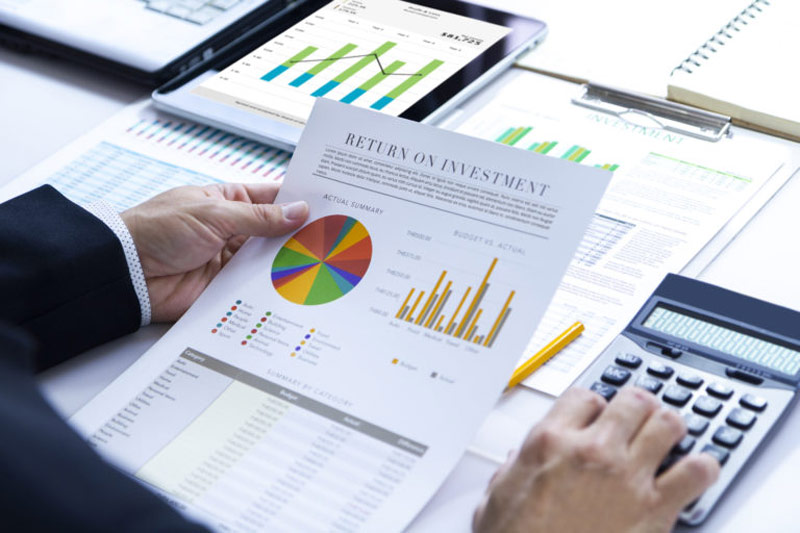What is Event ROI, and Why Does it Matter?
Essentially, event ROI is a term used to indicate and measure the value obtained after the culmination of an event, mainly those meant for marketing and promotion. Value is more than just financial: it can represent a retention of customers, growth in engagement, number of people who attended an event, and many more intangible benefits.
Similarly, the cost put into the creation of the event is not just the financial assets used to make it happen, but the skill, time, opportunity costs, and other resources that have gone into making it a success.
The calculation of ROI is largely straightforward, and is typically found by dividing the net value gained by the net cost put in to create the event. The result of the following equation is the event’s ROI percentage.
ROI: Net value gained / Net cost spent
One of the most important benefits of calculating your ROI is finding out whether the investments and costs you’re incurring to host events are worth it and working to retain customers, grow engagement, as well as sales.
Benefits to Tracking your ROI
Of course, there are more benefits to calculating your event ROI than determining your profitability and success over time, and helps make some crucial decisions based on clear data.

Once you know the impact your investments are making on your business, it is far easier to make decisions, especially if you realize that you’re wasting your money for results that are worth less. Here are some decisions ROI can help take:
- Sales strategy: if a particular change in strategy impacted your sales and engagement positively, obviously the effort put into changing that strategy was worth it. Study and track it more to see what you’re doing right through it.
- Equipment and software: finding the ROI of an asset enables you to understand its value to your work and make decisions about whether you want to upgrade it and how much more you want to involve it in your day to day work.
- New employees: if the time and resources you’re putting into training a new employee is not resulting in growth in work, chances are, your employee is more of a liability than an asset. Tracking their ROI enables you to hold employees accountable and decide the kind of employees you need working for the vision you have.
Figuring out where to spend your money, how to change your marketing strategies, and more is a lot to come out of a simple equation.
Top Metrics to Track to Gauge your Event Success
You’re on board to calculate your ROI, great! What now? What do you include in the value for the equation? Here are some things you need to keep in mind.

Identify your KPIs
Key Performance Indicators or commonly called KPIs are metrics that are used by your brand to work on the strategies set in place. Some of the most common KPIs are website traffic data, registrations for events, event check-ins on social media, queries received in app, social media mentions, new sales, profit, survey responses, cost per acquisition and customer, and so much more.
Session Registration and Actual Attendance
Event registrations aren’t just registrations, and mentions online are not just mentions, but data to be used to learn more about what is working and what isn’t. Why did one person register but the other didn’t?
Media coverage, website traffic, and conversion rates from email marketing all build up as metrics to study your return on investments. Time, money, and skill are involved in all aspects of marketing and encouraging attendance. The number of registrations, engagement online, and clicks and views matter as a part of this equation too.
Session Engagement
It’s hard to keep track of the number of people enjoying and attending your event, or is it? Record session registration and compare it to those who actually attended. Keep a lookout for posts about the event after it has ended; are people excited and thrilled about having attended, or are they disappointed?
If you’re concerned about live statistics, feel free to send a live poll to attendees in the form of an offline or online survey. Note the kind of interactions taking place during the session and whether they were appropriate to what the event aimed for. Are people live-tweeting about your events or making notes in their journal? That is usually a good sign.
But these metrics are important also because they help you realize what needs to be changed or improved in real-time, not just after the event. This effectively helps make the present experience better for those who might not be having the best time at your event and possibly retain more customers, drive more sales, and show strength.
Website Traffic and Social Media Engagement
Whether it is potential attendees before the event or those present during it, communication and buzz about the event continue to be built online even after the event is over. This is because it makes those who didn’t attend feel regretful for missing it, and makes it seem like those who did go had the time of their life.
Live-tweeting and uploading footage of the event helps online onlookers catch a glimpse of what they’re missing, ensuring that they know that they must attend the next time you plan a kick-ass event.
Some of the easiest ways to generate online growth are through hashtag development, logos, crisp and clear information on eye-catching posters. Encourage your followers to share and engage with your post on each social media platform.
Survey and Poll Data
One of the best times and places to generate insights about your event from those who are there in real-time is exactly there; real-time offline or online surveys help collect clear and fresh data that can help you finalize future events depending on whether your attendees are enjoying themselves and what can be improved from your end.
Using these surveys as a means to get feedback is the most crucial aspect that people tend to lose out on. Ask your attendees what they would like to see next time, or which of their expectations weren’t met this time around. This communication not only helps you for the next event you plan but also makes your attendees feel heard and respected.
Tips for Maximizing your Event from Start to Finish
Engage with your target audience ahead of time
Emails and social media need to be personal and well-timed. No one wants the hype to be built up 6 months before an event has to take place, but a month might be cutting it too short.
Take the time to build the conversation around your vision and their needs, listen to people, and make sure people from everywhere can see and interact with your brand or event. In this case, social media insights might be the key and crucial aspect that you study to ensure that you’re on top of your game.
Measure Engagement on the Day Through An Event-Specific App
Developing a singular app or website for each event might be a good idea, specifically if it supports registration and payment formats.
With these, you can effectively store data, study it, and ensure that you’re meeting your engagement and insight goals for each day, week, or month before the event is to take place.
Track Brand-related Hashtags and Tags
You’ve brainstormed and created a really strong and catchy hashtag and are using it in all your captions. Now what? Follow your hashtags on every social media to see how people are interacting with them and using them for their posts, stories, or tweets. Encourage a friendly community-building competition that makes use of the hashtag to make it appear on more feeds and grow your engagement.
Stay Ahead of the Curve with Data Metrics from Planning to Execution
Overwhelmed? We know! Luckily, all of this is easily managed through event planning software that aims to make your life easier, and your event spectacular.
Leverage the Power of Event Technology & Intelligence
Certain is ideal for any business that wants to succeed in its B2B event marketing efforts.
Whether you need to focus on registrations, data collection, or the generation of meaningful leads that are likely to be profitable, Certain offers an end-to-end platform with everything you need to succeed.
If you want to get more out of your events, contact us today to speak to one of our event experts.
